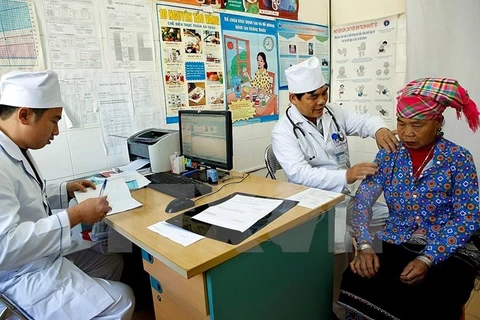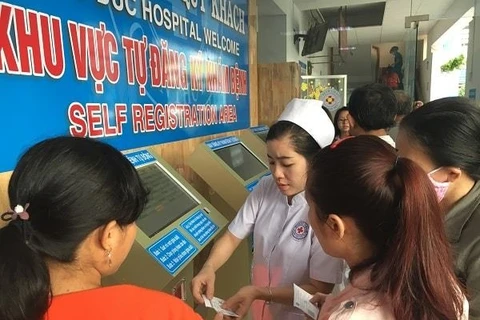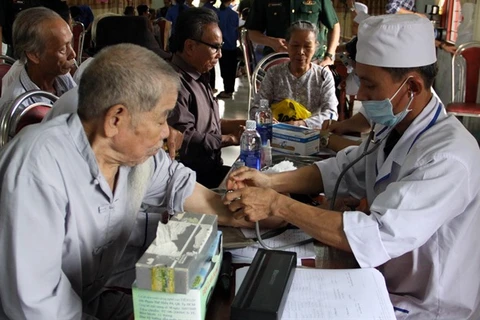HCM City (VNA) – Ho Chi Minh City has begun allocating funds to 24 health stations for upgrading their infrastructure, as part of efforts to strengthen primary health care in the model of family medicine.
The health station in Ward 13 became the first to join the programme.
According to Vice Director of the municipal Department of Health Tang Chi Thuong, besides receiving more than 1.7 billion VND (73,000 USD) from the city’s budget to upgrade its facilities, the station has got modern equipment like a basic biochemical testing system, ultrasound machines, and essential stock of medicines for initial medical checkups in line with the Ministry of Health (MoH)’s standards.
Two doctors from the Binh Thanh district hospital were sent to the Ward 13 health station to provide examinations to local residents. Meanwhile, 30 doctors with considerable expertise in gastrointestinal tract, endocrine, respiratory, cardiovascular, geriatrics, obstetrics and gynecology, and pediatrics at district- and city-level hospitals will provide the station with consultation and examination support via online medical diagnosis software.
Particularly, medical checkup fees will be covered by health insurance and medical records of patients kept in an electronic database at the station. “These positive changes will contribute to enhancing trust among local residents and improving images of the grassroots-level healthcare system”, Thuong said.
Earlier, within the project approved by the Prime Minister to develop grassroots-level medical stations, the MoH selected 26 health stations in eight cities and provinces to implement its pilot programme, aiming to improve primary health care in line with the principles of family medicine. The stations will work to improve public health, manage personal health records of local residents, cure non-communicable diseases, and ensure effective vaccination campaign, among others.-VNA
VNA























